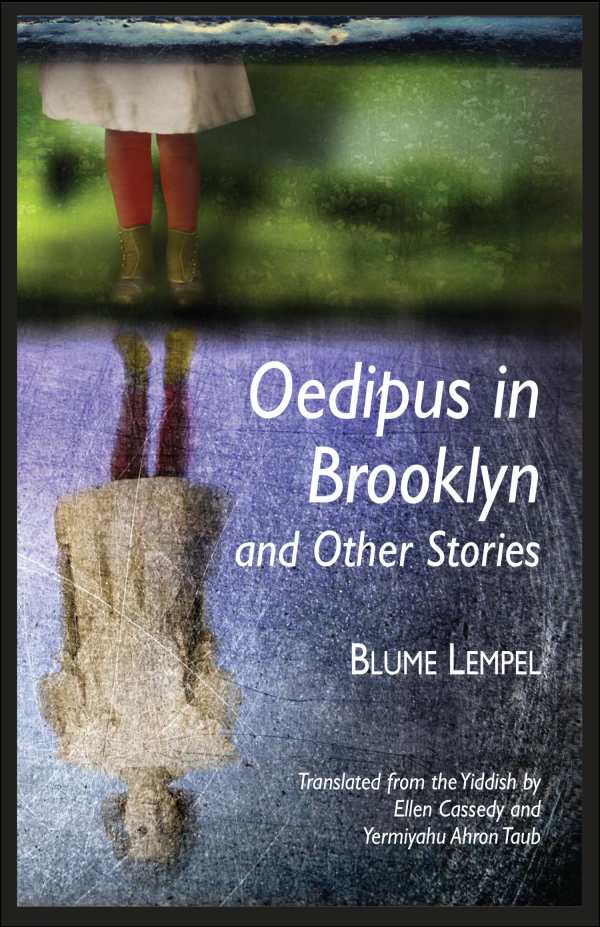Oedipus in Brooklyn and Other Stories
These stories deserve a cherished place in the canon of Jewish literature.
Oedipus in Brooklyn gathers stories and personal essays from Blume Lempel, a Yiddish-speaking refugee who escaped the Holocaust in America but who never stopped writing about its impact upon her family and community. Stories throughout the collection are searing, both defiantly vibrant and achingly brutal, and cover topics from madness to beginning again, always with masterful attention to detail.
Stories trade between the real and the imagined. In one, a woman survives the war only to experience a total psychological break, and is haunted by the memory of the brutal villager who raped her as she hid; a heart-wrenching tribute to the author’s friend produces similar details. Lempel says Kaddish for the departed, either overtly in the course of relaying memories, or in fictionalized accounts of lives taken.
Lines strain to catch elusive moments: the light as it falls across a Pesach table; magical prisms in a distant field. Mothers reach out to children broken or departed; survivors seek revenge. Those who are left carry scars, either directly inflicted or as the result of broken bonds. Lempel’s language is poetic throughout, a gorgeous tribute to human desires and potential, even though individual works express ambivalence about the power of language, particularly at resurrecting the departed.
In the wake of tragedies, from the Holocaust to family disasters, chasms open up between characters, all of whom ache for intimacy that seems unattainable. Touch is both a balm and a thing that burns in many stories—or is sometimes both at once; sex is a recurring craving in these tales, but one never sated, and hunger, which manifests itself across settings, is similarly never satisfied.
From Italy to Brooklyn, Lempel’s characters prove incapable of outrunning the past. They try—but memories abandoned “like a stack of unsigned poems” return as specters, and trying to outrun them leaves speakers “grasping blindly like fantastical fins at the faces that swim by.”
Lempel’s lines work to make ravaged land flourish again, and what flowers forth is both lovely and heartbreaking. These are stories that deserve a cherished place in the canon of Jewish literature.
Reviewed by
Michelle Anne Schingler
Disclosure: This article is not an endorsement, but a review. The publisher of this book provided free copies of the book to have their book reviewed by a professional reviewer. No fee was paid by the publisher for this review. Foreword Reviews only recommends books that we love. Foreword Magazine, Inc. is disclosing this in accordance with the Federal Trade Commission’s 16 CFR, Part 255.

